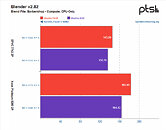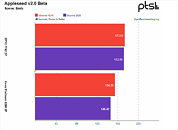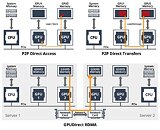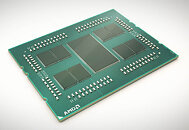
OIST Deploys AMD EPYC Processors with Over 2 PFLOPs of Computing Power Dedicated to Scientific Research
Today, AMD and Okinawa Institute of Science and Technology Graduate University (OIST), announced the deployment of AMD EPYC 7702 processors for use in a new, high performance computing system. The EPYC processor-based supercomputer will deliver the 2.36 petaflops of computing power OIST plans to use for scientific research at the University. The Scientific Computing & Data Analysis Section (SCDA) of OIST plans to implement the new supercomputer for supporting OIST computationally intensive research ranging from bioinformatics, computational neuroscience, and physics. SCDA adopted AMD EPYC after significant growth, including a 2X increase in users.
"2020 is a milestone year for OIST with new research units expanding the number of research areas. This growth is driving a significant increase in our computational needs," said Eddy Taillefer, Ph.D., Section Leader, Scientific Computing & Data Analysis Section. "Under the common resource model for which the computing system is shared by all OIST users we needed a significant increase in core-count capacity to both absorb these demands and cope with the significant growth of OIST. The latest AMD EPYC processor was the only technology that could match this core-count need in a cost-performance effective way."
"2020 is a milestone year for OIST with new research units expanding the number of research areas. This growth is driving a significant increase in our computational needs," said Eddy Taillefer, Ph.D., Section Leader, Scientific Computing & Data Analysis Section. "Under the common resource model for which the computing system is shared by all OIST users we needed a significant increase in core-count capacity to both absorb these demands and cope with the significant growth of OIST. The latest AMD EPYC processor was the only technology that could match this core-count need in a cost-performance effective way."












































